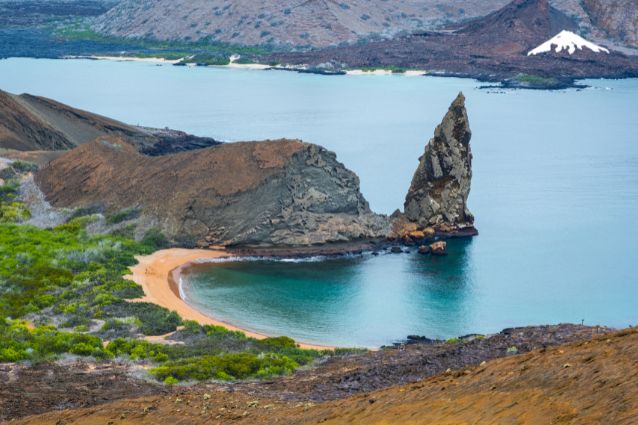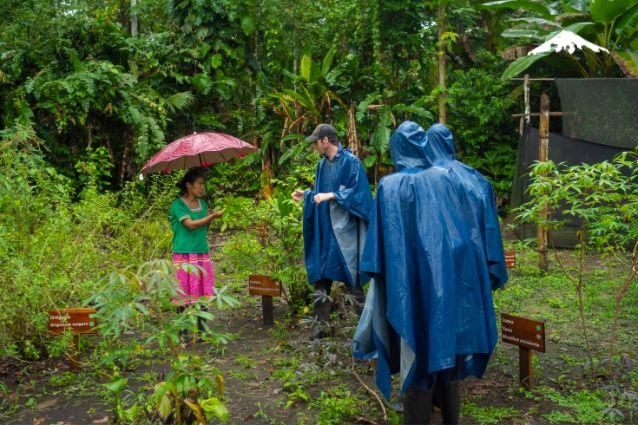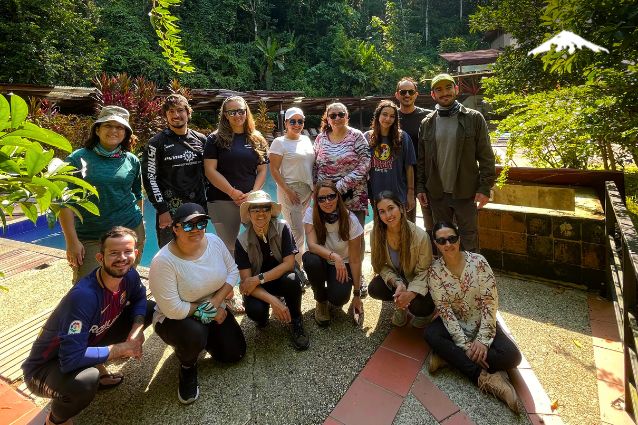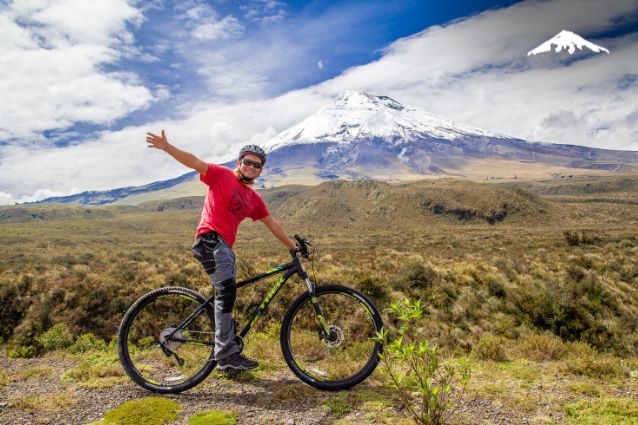Sustainable Travel: Actionable Steps for Your Company

In this article, we’ve put together a practical guide of actionable steps for a sustainable travel industry. Whether you’re soaking up the sun on a tropical island or conquering mountain peaks, you can travel sustainably. But before we dive into the details, let’s unravel the mystery of sustainable travel. What does it mean, and how can we make it a lifestyle?
Our sustainability credentials
To practice sustainable travel, first, you need to look at how tourism works. Tourism is a complex industry with strong ties to supply chains from other market systems. It is heavily reliant on physical infrastructure and human resources. It is strongly influenced by international relations, labor, and environmental policies. When the pandemic arrived, the world changed and every niche had to adapt to the new reality.
We can all acknowledge that COVID-19 made us realize the significant impact that human beings can have on their environment. We have witnessed how our actions are often the biggest source of pollution in a place. Having resumed our regular routines, there is a lingering concern about what that might mean for the environment, especially when it comes to travel.

The iconic Pinnacle Rock in Bartolomé Island.
What is Sustainable Travel?
Travelers whose choices align with responsible tourism practices engage in sustainable travel. When exploring a destination, they focus on minimizing harm and increasing positive impact. A common form of sustainable travel is ecotourism, which encourages responsible actions to preserve the environment, creating a balance between enjoyment and conservation.
Sustainable tourism is about making conscious travel decisions that benefit local communities, preserve cultural heritage, and minimize environmental impact. It’s a commitment to positive contributions in the present while conserving destinations for future generations. It underscores responsible and ethical behavior during travel to foster long-term sustainability.
Ecotourism emphasizes responsible travel, conservation, and sustainability, whether in natural or urban settings. While it focuses on natural areas for biodiversity appreciation and conservation, it extends beyond touring the wilderness. Urban ecotourism focuses on environmentally conscious practices within cities. Examples include eco-friendly trips, visits to green spaces, and tours of urban sustainability projects.

Visiting local communities in the Amazon Basin.
Creating a Sustainable Travel Chain: Key Actions
Lead by Example
Adventure travel providers are removing environmentally harmful elements from their offerings, with a focus on eliminating single-use paper items and plastics. Additionally, these suppliers are actively incorporating more sustainable choices for guests, such as partnering with local organizations and communities and ensuring fair compensation for all employees. Furthermore, suppliers are removing experiences that don’t represent the destination.
At Rebecca Adventure Travel, we greet our guests with a welcome package that equips them with a reusable fabric bag and a reusable metal water bottle. We are constantly training on the newest sustainable practices by attending international summits, like Regenerative Travel, and local workshops led by Quito Turismo. Also, we actively recycle non-biodegradable items in our offices.

The Rebecca Adventure Travel team at the Itamandi Ecolodge in Misahuallí.
Educate Your Clients About Sustainability
Enhance sustainability in the tourism industry by serving as a bridge connecting agencies, communities, and the environment. Utilize tours as opportunities to educate visitors on preserving the local culture and nature of the destination. If your company collaborates with nature reserves, advise guests against interacting with wild animals, emphasizing the importance of observing wildlife from a distance.
Consider developing educational tours to increase travelers’ environmental awareness and providing pre-trip education. On your website, incorporate a dedicated page with valuable information about responsible travel and sustainable tourism. This proactive approach contributes to fostering a responsible and eco-conscious travel experience.
Prioritize Local Offerings
Locals are the most knowledgeable. Tapping into their expertise and collaborating to create an inclusive tourism ecosystem is critical. Allowing locals a say in how tourism unfolds in their community builds harmonious relationships between them, tour operators, and visitors.
Walking tours, diving trips, cooking classes, and eco-tours led by locals are great ways to get visitors involved in the community. Actively encouraging small businesses stimulates the local economy and strengthens community relationships. Surprisingly, only a small portion of the money spent by tourists on vacation ends up in the pockets of locals. This is known as tourism leakage, which tour operators can address by:
- Hiring villagers: Employing locals channels funds to the community.
- Purchasing from local suppliers: This keeps the funds in the community while also reducing your carbon footprint. Local produce travels shorter distances, resulting in lower CO2 emissions.
- Broadening itineraries: Focusing solely on popular attractions and sites prevents funding from reaching community members. Exploring nearby towns or remote areas benefits the local economy.

Christmas celebration at Antonio José Ulloa School.
Partner With Sustainable Businesses
On your path to sustainability, it is critical to have partners who share the same ideal. Tour operators and Destination Management Companies (DMCs) can contribute to environmental projects or organizations that promote local development.
Responsible Travel stands as an exemplary model, placing sustainability at the heart of a brand’s identity. Customers can evaluate the company’s self-assessment of each trip, ensuring their journeys contribute to community support and environmental preservation. Choose partners whose tours and policies resonate with your values, supporting a responsible approach to travel that nurtures longevity.
What Sustainable Travel Means For Your Company
Operating sustainably is a vital aspect that travel companies cannot overlook. When it comes to your own brand, making a few significant changes could help you gain a competitive advantage and improve the quality of your service.
- Sustainability enhances traveler experience: Environmentally responsible choices extend to a broader awareness of, and respect for, local cultures and communities. This will lead you to choose community-based travel over tourist traps, which aids in energy and waste management. When travelers prioritize sustainable options, they are more likely to engage in authentic cultural exchanges. This promotes a mutually beneficial positive relationship with host cultures. Because sustainability makes the traveler experience better, tour operators and DMCs that prioritize sustainable travel are able to cultivate fidelity among their clients.
- Responsible tourism secures future returns: The sustainable efforts made to enhance the overall experience for visitors also preserve the natural beauty and cultural richness of the destinations they visit. As travelers witness the positive impact of responsible tourism, they are more likely to return. This ensures a continuous cycle of sustainable travel and a thriving relationship between travelers and destinations. Because protecting the destinations they’ve invested in creates a steady stream of visitors over the years, responsible tourism becomes a wise investment strategy for travel companies. Travelers who value a company’s dedication to sustainable travel will book with them for every trip.
- Sustainable actions fight greenwashing: Given the increasing awareness of greenwashing, being transparent with clients is essential. It’s crucial to remember that actions speak louder than words, especially in an era where mindful travelers extensively research travel companies. Clients are more likely to have a negative view of companies that make deceptive environmental claims. Merely saying you are sustainable without concrete actions to back it up can pose a risk to your reputation. Instead, identify solutions aligned with your offerings and implement them. This might involve making commitments, investing in sustainable practices, adapting core services to meet new standards, or enhancing transparency in the booking process to cater to environmentally conscious travelers.

Biking in the Cotopaxi National Park, Ecuador.
These improvements not only contribute to a healthier planet but also support nature and wildlife conservation. Highlighting the growing trend of ecological movements, us all need to play our part in preserving the planet and continue enjoying the wonders it has to offer. Ultimately, we are collectively contributing to positive change!
Ready for your sustainable travel adventure? Let us customize your trip. Contact us today with any special requests! Our Destination Experts can organize a complete private tour with services and hotels chartered, a wedding or honeymoon, a family trip, a very short tour, or any other kind of trip for you.
Did you like this blog? You might also like:
- Sustainable Tourism Is Transcendental to Rebecca Adventure Travel
- 8 Ways to Make Your Travel More Sustainable in Latin America
- Top Tips for Choosing Sustainable Accommodation While Traveling




